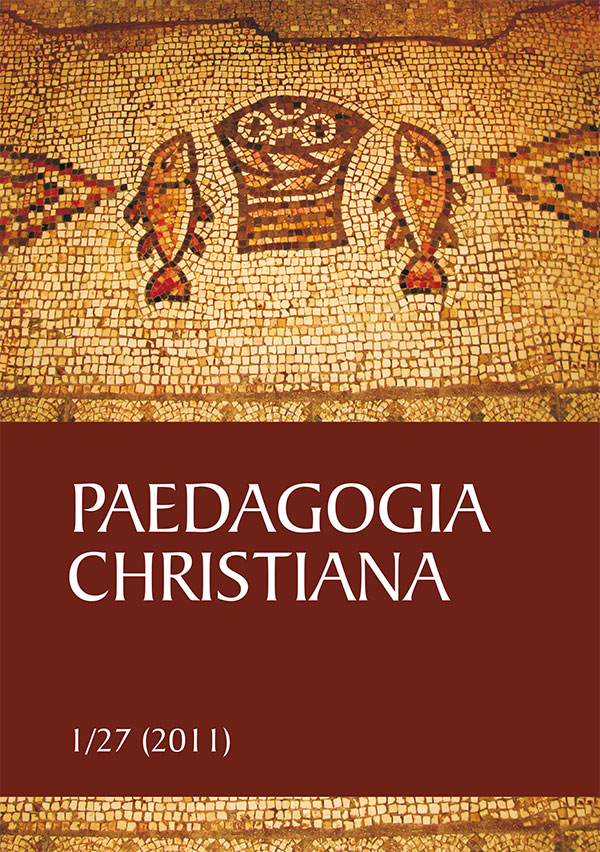Wychowanie młodego pokolenia w religii biblijnego Izraela
DOI:
https://doi.org/10.12775/PCh.2011.016Abstrakt
Monotheism, holiness, morality and the freedom of human will, revealed to Jews by the omnipotent God, definitely constitute the cornerstone of the upbringing of the young generation in the religion of the Biblical Israel. The Hebrew Bible contains a number of terms that describe the process of teaching and learning. Expressions referring to education include “instructing”, “cautioning”, “training”, “prescribing”, “declaring” or “guiding”. The family played an extremely important pedagogical function in the religion of Biblical Israel. Children were always regarded as a gift from God. The family was the first school where children learnt about the beauty of the Jewish religion and acquired an adequate approach to themselves, other people and the world. Particular responsibility rested on the father of a family. The Jews of the Biblical era had a duty to study every day. The obligation of continuous study was not limited to a certain category of people; it applied to various social groups, including the ruler. The public reading of the Law (the Torah) held a special place among educational methods. The aim of that practice was to familiarise as many people as possible with the Law. History and celebration of festivals were significant elements of the education process. Passover (Pesach) was a typical example of the educational character of history and religious festivals. The Bible is a pragmatic book. It contains several references to human actions and tasks (skills, professions). Another important issue was discipline, i.e. the approach to a student and verification of the knowledge and skills he or she had acquired. The stories of Biblical figures were presented to students in order to shape their moral attitudes. The teacher played a key role in the process of upbringing. According to the Bible, God Himself is the most important teacher.
Pobrania
Opublikowane
Jak cytować
Numer
Dział
Statystyki
Liczba wyświetleń i pobrań: 3011
Liczba cytowań: 0



